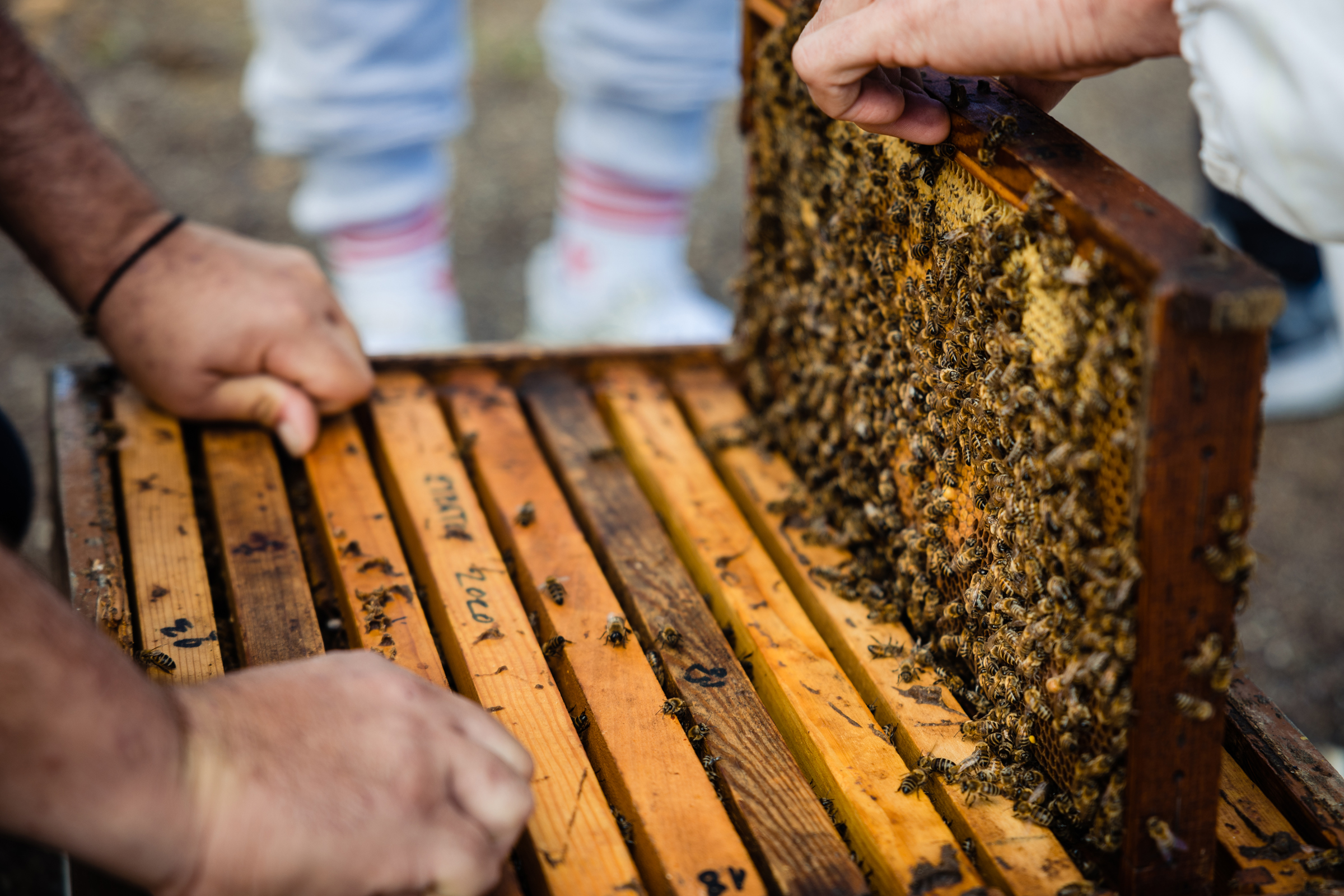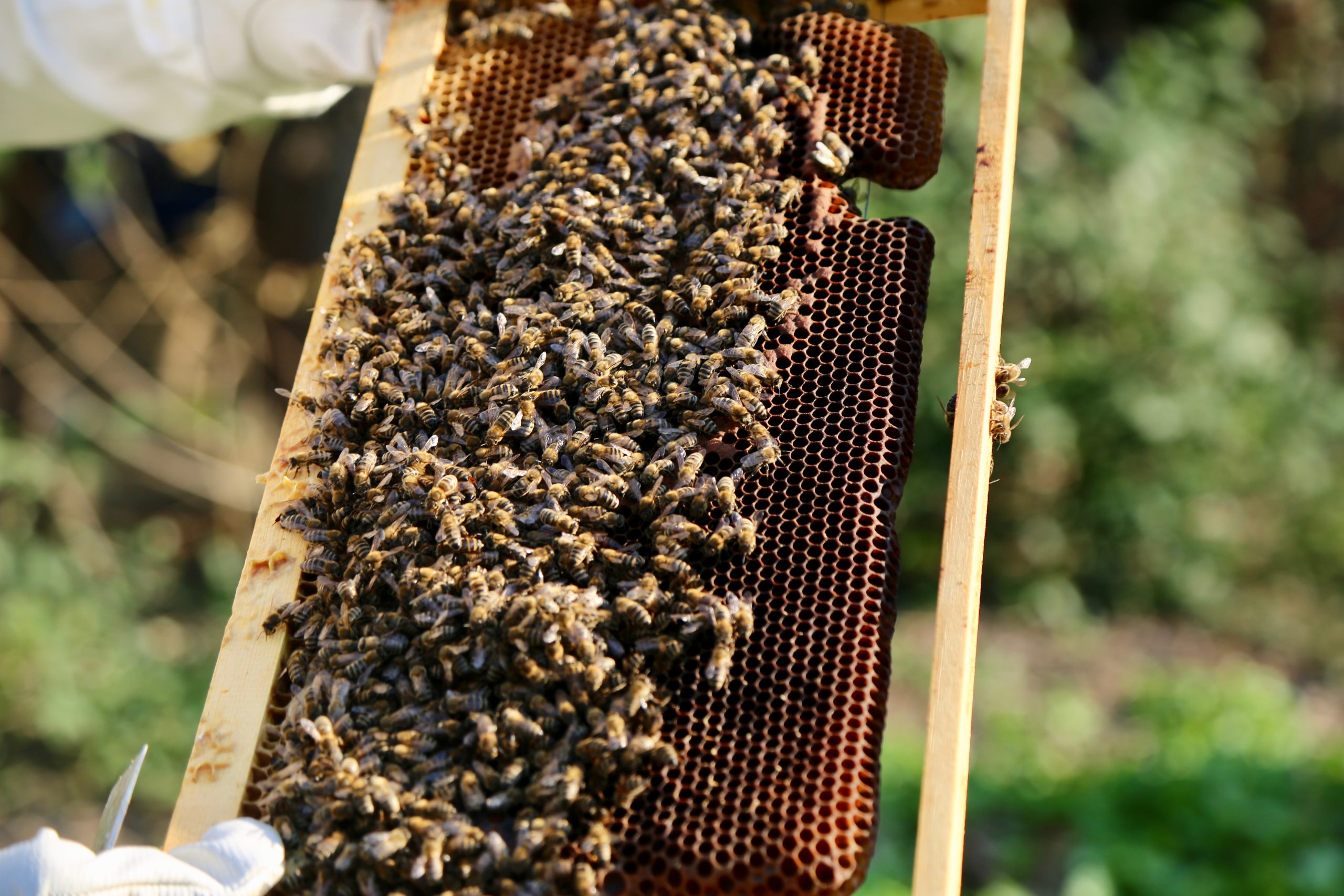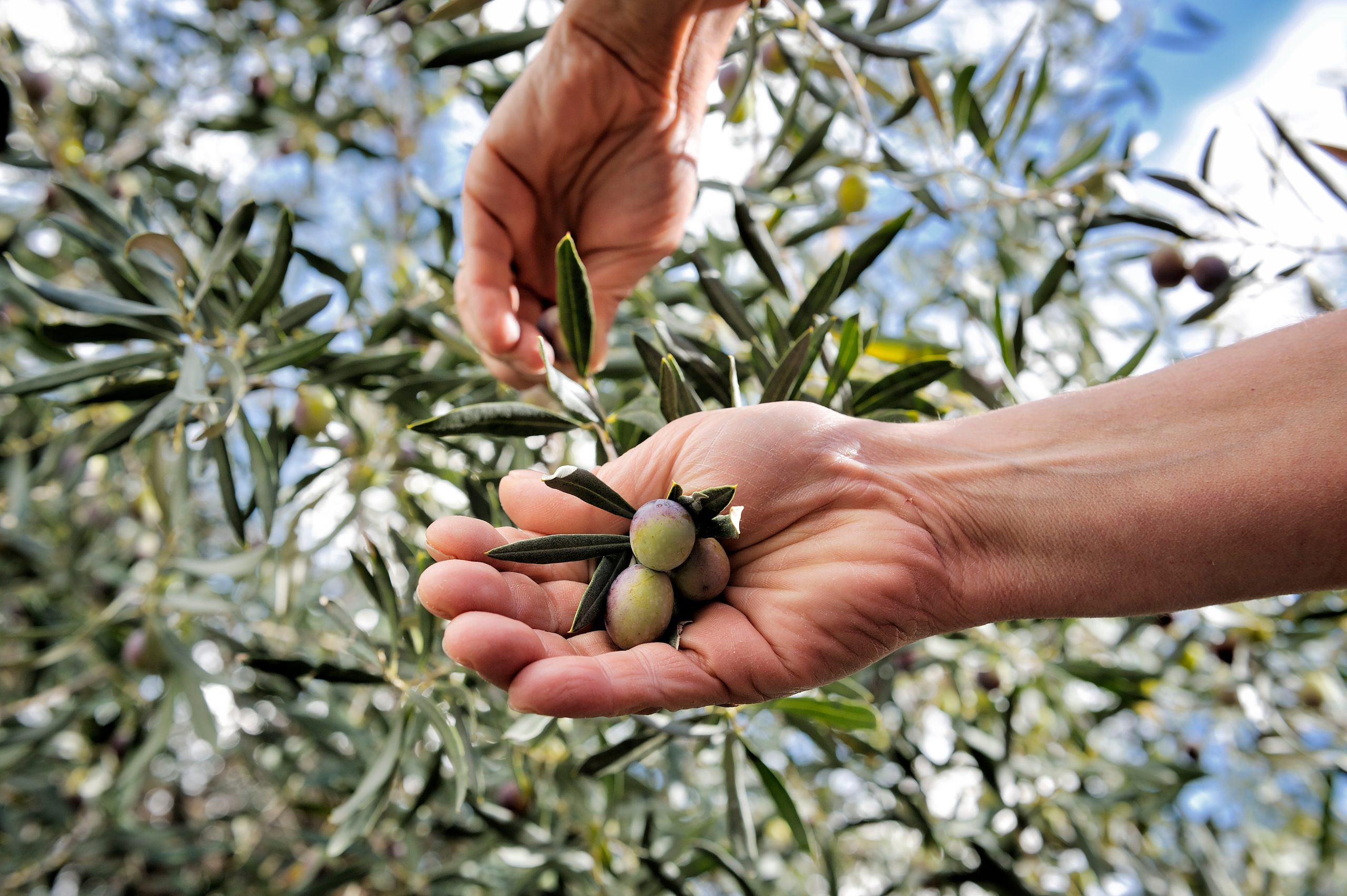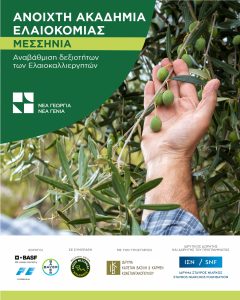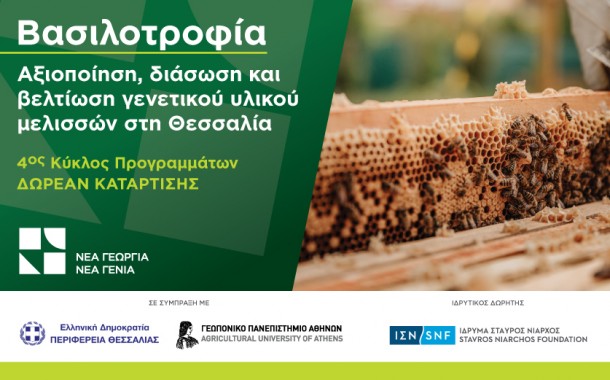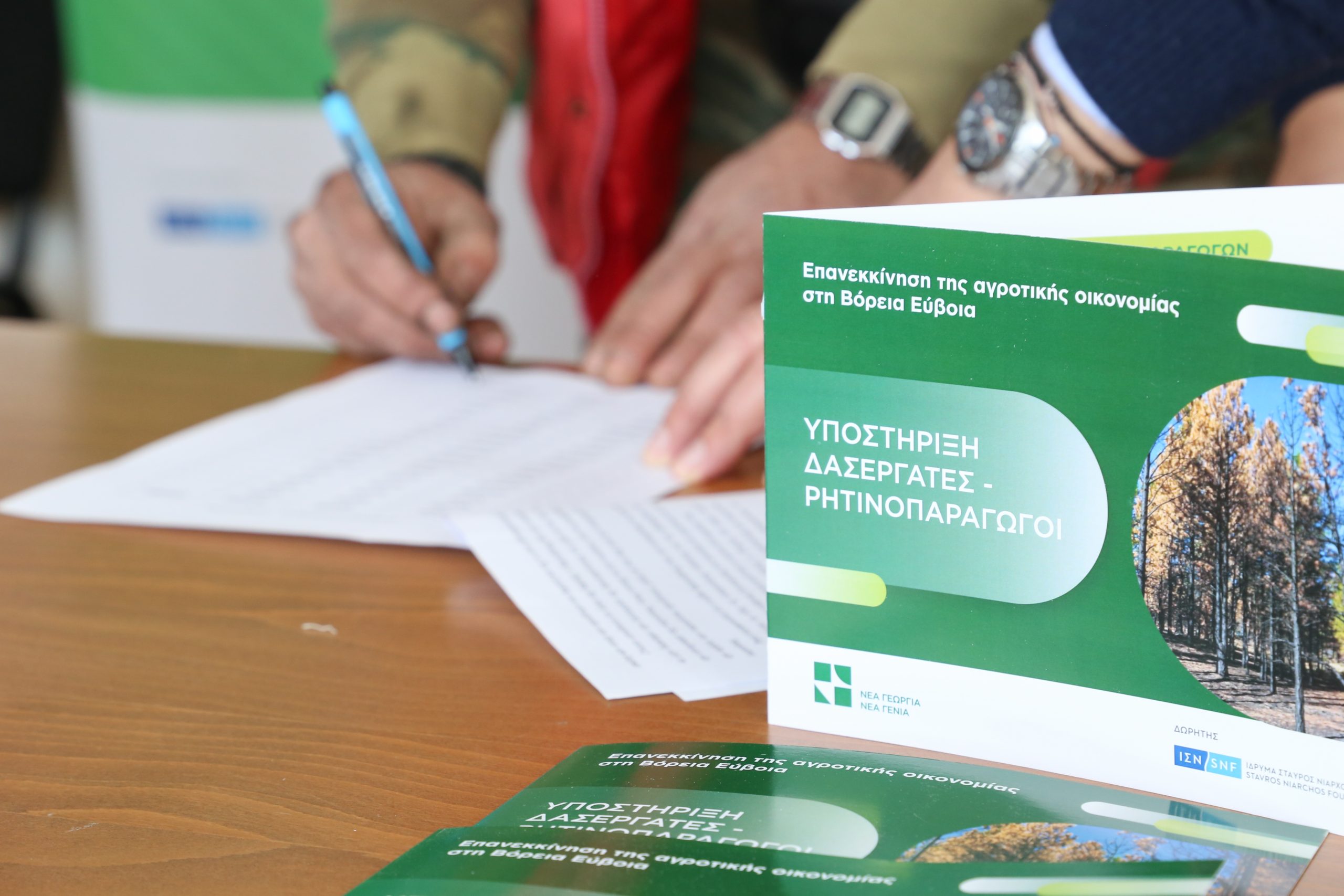New Agriculture New Generation announces the second phase of the training and advisory program “Queen Rearing in Central Greece – Utilization, Conservation, and Improvement of Bee Genetic Material | Phase B: Queen Rearing in Practice,” which will be implemented in the Regional Units (R.U.) of Boeotia, Evrytania, Phthiotis, and Phocis.
Summary
The program is co-financed by the New Agriculture New Generation organization through the founding donation of the Stavros Niarchos Foundation (SNF), the Region of Central Greece, the Ioannis S. Latsis Public Benefit Foundation, and the APIVITA within the framework of the Billion Bees Program.
The program is carried out in cooperation with the Agricultural University of Athens, under the scientific guidance of the Laboratory of Sericulture and Queen Rearing, led by Associate Professor George Gkoras. It is being implemented for the third consecutive year, having started in 2022 in Thessaly and continued the following year in Evia. As part of this, the program has already received significant recognition in Greece, including the Bravo Sustainability Award 2022 in the category of “Protection of Ecosystems and Biodiversity” and the GOLD Environmental Award in the “Sustainable Agriculture” category. Program beekeepers also significantly contributed to the “Restarting Beekeeping in Thessaly: Queen Rearing: Replacement and Conservation of Endemic Genetic Material” program, which provided support to beekeepers affected by the “Daniel” storm by supplying 27,000 king bee cells from selected genetic material.
Overall, the program “Queen Rearing in Central Greece: Utilization, Conservation, and Improvement of Bee Genetic Material” consists of two components:
-
The identification and specialized training of up to 20 individuals with knowledge and experience in beekeeping practices, who will be trained in king bee breeding and royal jelly production, as well as general specialized knowledge in correct beekeeping practices. After receiving this essential training, the 9 most qualified will be selected to support the next phase of the program.
-
The activation of 9 selected specialized vaccinators in the Region of Central Greece (approximately 2 people per Regional Unit – Boeotia, Evrytania, Phthiotis, Phocis). Their action will involve coordinating with local beekeepers who wish to participate in the program, organizing demonstrations and carrying out the vaccination of king bee cells to produce high-quality queens from selected genetic material.
Objective of Phase B
Phase B follows the first phase of the program, through which 9 beekeepers in Central Greece were trained in . These specialized beekeepers have the ability to present the method, explain the process in detail, and answer questions from participating beekeepers. The goal is to familiarize a large number of beekeepers with the process of producing high-quality queens and implementing a significant number of king bee cell vaccinations. During this period, the region It will be supported with up to 7,500 high-quality queen cells, derived from the genetic material of the beneficiary beekeeper.
Specifically, each beekeeper participating in the program will:
-
Receive up to 30 king bee cells, free of charge, from selected genetic material.
-
Learn the step-by-step process of king bee breeding alongside trained beekeepers in their area.
The long-term goal of the program is the mass production of selected genetic material throughout the Regional Units of Boeotia, Evrytania, Phthiotis, and Phocis, with the ultimate goal of increasing production and developing more resilient bee colonies through the optimization of endemic genetic material. In this way, queen Rearing in Central Greece will be strengthened, biodiversity in the region will be enhanced, and local agricultural production will be supported, as bees are among the most important pollinators of plants (over 85% of plants related to agricultural production).
Who the program is addressed to:
Any beekeeper active in the wider area of Central Greece (excluding Evia).
Region of action for the 2025 cycle
R.U. of Central Greece (excluding Evia)
Timeline
Phase B of the vaccinations will last approximately from April 2025 to May 2026.
Participation Cost
FREE
Watch the video from a previous cycle of the program.
Contact Numbers for Evrytania
-
Panagiotis Kalogeropoulos, 6997182332
-
Thomas Skotidas, 6973705211
Contact Numbers for Boeotia
-
Lambros Igglezos, 6972471961
-
Thanasis Kalantzis, 6942768383
-
Nikolaos Rahoutis, 6946508234
Contact Numbers for Phthiotis
-
Christos Karapetsakos, 6955904274
-
Giannis Mokas, 6977647066
Contact Numbers for Phocis
-
Nikos Kritzalis, 6997729573
-
Giorgos Pappos, 6972834249
For More Information
-
Filippa Griva
Agricultural University of Athens
Contact Phone: 6970508200
Email: [email protected] -
Kalliopi Karampoyki, Capacity Building Manager
Nea Georgia Nea Genia
Contact Phone: 2106917986, 6972096122
Email: [email protected]
